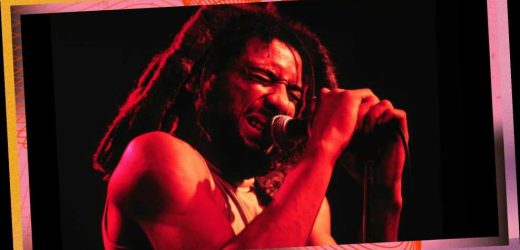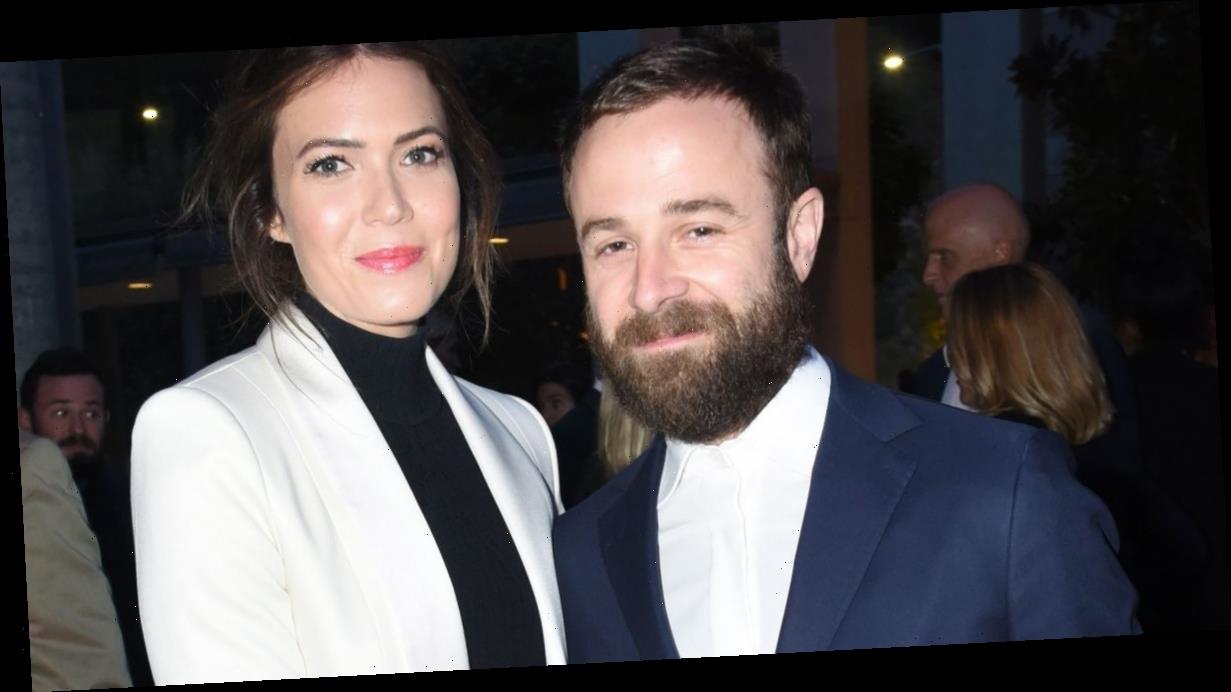Punk music has always been about individuality. Although skinheads and fascists have periodically tried to co-opt and homogenize the genre over its 50-year history, they have always failed, because the true spirit of punk begins with an original thought, a unique life story, and the poetic philosophies that truth is beauty and that the pomp and artifice of pop music are a distraction from expressing something deeper.
At its core, punk is the people’s rock & roll. Perhaps that’s one reason why the genre appeals more broadly than some other styles of rock to people from every background, and why there have been strong black voices in the genre almost from the beginning, whether it was drummer D.H. Peligro railing against Reagan with the Dead Kennedys or guitarist Rocky George sending up blind capitalism on Suicidal Tendencies’ “Join the Army.” Anyone can play punk, and everyone is welcome, so why not just do it? Here is a decades-spanning selection of 15 bold songs by vital black artists, each of whom shows off a singular punk energy.
Death, “Freakin Out” (1975)
A few years after Detroit’s great proto-punk groups the Stooges and the MC5 met their ends, Death rejuvenated the genre in the Motor City. As chronicled in the documentary A Band Called Death, brothers Bobby (vocals-bass), David (guitar), and Dannis Hackney (drums) formed the group in the early Seventies but quickly traded funk for punk after drawing inspiration from the Who and Alice Cooper. Arista honcho Clive Davis was a fan but refused to put out any of their music because of their name, and the group fizzled out prematurely during the Great Punk Boom of ’77. It’s a shame, because songs like “Freakin Out,” which they recorded in ’75 but didn’t release until 2009’s … For the Whole World to See, presaged the punk sounds that would later come out of London and New York.
X-Ray Spex, “Oh Bondage! Up Yours!” (1977)
Poly Styrene knew how to make an introduction: “Some people think little girls should be seen and not heard, but I think … ” she says in a sweet cockney accent at the start of the band’s debut single, before screaming, “Oh, bondage! Up yours!” The singer, whose father was a Somali dock worker, had previously put out a reggae single under her real name, Mari Elliott, in 1976 — the same year she saw the Sex Pistols and subsequently dove headfirst into punk with X-Ray Spex. “Oh Bondage! Up Yours!” was an instant hit in the scene, and by 1978, they were playing alongside the Clash, Sham 69, Generation X, and Steel Pulse at London’s Rock Against Racism protest gig. They broke up in ’79, and Poly Styrene went solo, eventually reuniting with her bandmates in the Nineties. The singer died of breast and spinal cancer in 2011 at age 53.
National Wake, “International News” (1981)
On June 16th, 1976, thousands of students in Soweto, South Africa, marched in protest of apartheid and the government’s insistence on teaching school in the Afrikaans language. Authorities responded with tear gas and bullets, killing between 400 and 700 people, including children. This event brought together National Wake, which played a mix of reggae, funk, and punk, and whose members were black (brothers Garard and Punka Khosa, who played bass and drums respectively), Jewish (singer-guitarist Ivan Kadey), and white (guitarist Steve Moni). The band’s deceptively upbeat “International News” describes the government throwing “a blanket” over Soweto and it protests war in Angola. Although they never achieved much fame — apartheid kept them from performing in public — their influence spread regionally, and they reached a wider audience in 2011 from their inclusion in the documentary Punk in Africa.
Whipping Boy, “Human Farm” (1982)
Bay Area punks Whipping Boy, whose singer Eugene Robinson and drummer Dave Owens are black, possessed a uniquely vitriolic outlook among the spawn of Black Flag–inspired hardcore-punk bands. Vocalist Robinson, who now fronts the avant-garde noise-rock band Oxbow, had a way of singing that blended whispers and guttural growls effortlessly, making songs like the minute-long “Human Farm” and its sarcastic lyrics about Nazis’ inhumanity all the scarier. The group’s whirling-dervish riffing and Robinson’s confrontational attitude attracted the attention of the Dead Kennedys, whose bassist, Klaus Flouride, produced their debut record. Their association with the Kennedys also earned “Human Farm” a spot on the 1982 comp, Not So Quiet on the Western Front, which came out on frontman Jello Biafra’s Alternative Tentacles label.
Bad Brains, “Attitude” (1982)
The band that inspired a thousand more, Bad Brains exploded out of Washington, D.C. in the late Seventies, drawing equal inspiration from the Ramones and Bob Marley for their own head-spinning mix of hardcore punk and roots reggae. The quartet’s 80-second rager, “Attitude,” outlined their philosophy of keeping a P.M.A. or “positive mental attitude,” inspired by the self-help book Think and Grow Rich. “In the book, one of the teachings was, ‘Anything the mind can conceive, the mind can achieve,’” frontman H.R. once explained. “And one of the principals was to be positive and have P.M.A.: a ‘Positive Mental Attitude.’” That outlook resonated throughout the punk world, inspiring Minor Threat, Henry Rollins, the Beastie Boys, the Cro-Mags, and countless others.
Bl’ast, “Poison” (1987)
Decades before William DuVall joined Alice in Chains for their gold-certified comeback album, Black Gives Way to Blue, in 2009, he was playing guitar with Bl’ast, a Black Flag–styled hardcore group from Santa Cruz, California. The artist, who went by “Kip” at the time and previously played in an Atlanta group called Neon Christ, participated in the recording sessions for the group’s 1987 LP, It’s in My Blood, but wound up quitting over creative differences before the album was mixed, and the band subsequently muted his parts on the album. When Dave Grohl got his hands on the tapes in 2013, he rediscovered DuVall’s parts and remixed the record, now titled Blood, to include him. One of the LP’s standouts, “Poison,” features lyrics DuVall co-wrote, as well as some snarling guitar lines. “It was a really strange experience, and I wouldn’t trade it for the world,” DuVall told Spin in 2013. “It influenced my own work ethic in Alice in Chains.”
Fishbone, “Deep Inside” (1988)
Formed in South Central Los Angeles in the late Seventies, Fishbone concocted a funky cocktail of ska and punk on their early records before embracing alt-metal in the Nineties. Their second album, Truth and Soul, featured the ramshackle, 80-second “Deep Inside,” which found the group layering jazzy vocal harmonies over chunky punk rhythm guitar, as the group, whose members trade off vocals, sings about people judging them without knowing them. “You can’t rock out because you ain’t the kind,” goes one lyric, which they follow up with: “Well, if you were on the other side of the fence/Well, maybe you’d understand/I may freak you out with my raw look/’cause I just got the feelin’, man.” Elsewhere on the record, Fishbone show their tender side on the ska song “Ma and Pa” and even give a metallic touch to Curtis Mayfield’s “Freddie’s Dead,” another song featured on one of Rolling Stone’s Black History Month playlists.
Burn, “Drown” (1990)
Burn issued only four songs in their short-lived first run on the Burn EP, but they were potent enough to make them underground legends to fans of the hyper-local sub-subgenre New York Hardcore. The plodding “Drown” found frontman Chaka Malik singing about writhing under the pressure of depression amid chunky, jazzy guitar riffs. “Drowning in a sea of emotion,” he bellows, “I’m trapped by my actions/I’m falling prey to my emotions.” In 1992, Malik split and formed Orange 9mm, a more metallic post-hardcore group, a couple of years later. After that group dissolved in 2000, he reunited with Burn, and the influential group eventually released their first full-length, Do or Die, in 2017.
Body Count, “Cop Killer” (1992)
By 1992, Ice-T, the loud-and-proud O.G. of gangsta rap, was no stranger to controversy; he’d even put out a record called Freedom of Speech … Just Watch What You Say. So the world should have been ready for him to go full punk rock with the scabrous revenge fantasy “Cop Killer,” a hardcore song he recorded with his bandmates in the all-black metal group Body Count. The tune took N.W.A’s “Fuck tha Police” a step farther: “Cop killer, better you than me/Cop killer, fuck police brutality/Cop killer, I know your family’s grievin’ … fuck ’em!/Cop killer, but tonight we get even.” Unfortunately, the timing of the release worked against him. On March 3rd, 1992, four L.A.P.D. officers viciously beat an unarmed black man, Rodney King, sparking riots in Los Angeles; the album Body Count came out a week later. Under intense scrutiny, Ice-T removed the track from the album. (It remains unavailable on the major streaming services, but you can find it on YouTube.) “I didn’t really think ‘Cop Killer’ was such a bad record considering I was familiar with [punk] bands like Millions of Dead Cops,” Ice-T reflected in 2014. “I was familiar with Black Flag always fucking with the police in songs like ‘Police Story.’ I didn’t really think the cops would be looking to the music enough to get mad; I just thought that it was just going to be punk rage. And it turned into a real big shitstorm.”
Living Colour, “Ausländer” (1993)
Less than a decade after Living Colour broke mainstream rock’s race barrier with their jazzy, jagged funk-metal triumph, “Cult of Personality,” the entire genre shifted toward punk, thanks to Nirvana’s popularity. Luckily for Living Colour, they had already flirted with punk on the songs “Type” and “Time’s Up,” off their second album, 1990’s Vivid, so they just brought those sounds more into focus on 1993’s Stain. Although the album’s soulful hard rocker “Leave It Alone” earned them a Grammy nomination that year, and the envelope-pushing video for their ode to bisexuality, “Bi,” was too hot for MTV, Living Colour’s punk spirit shined brightest on the single “Ausländer” (German for “foreigner”) and its industrial-strength skronk. The chorus, “Everything that I want, isn’t it everything that you’ve got?” isn’t too far removed from the Sex Pistols’ “I know what I want and I know how to get it” and in true punk fashion, the song’s sound and fury ends in less than three minutes.
Skunk Anansie, “Intellectualise My Blackness” (1995)
The Great Alternative Boom of the Nineties shined a spotlight on bands who drew inspiration from Eighties hardcore and reframed the genre in unusual ways. One of the most unclassifiable groups to emerge in the era was the multiracial London quartet Skunk Anansie, whose frontwoman Skin brought a confrontational energy to her bandmates’ funky, hard-rock, occasionally avant-garde songs. Although “Intellecutalise My Blackness” had a stronger funk-metal energy on the band’s debut, Paranoid & Sunburnt, live performances presented Skin’s lyrics in a more direct, punk context, which made her lyrics all the more cutting. “I hit him with a piece of his philosophy,” she sings, “Anglo-Saxon mocking his type of greed/What did he do to deserve such hate?/He tried to intellectualize my blackness.” Her words resonated in England, where the record made it to Number Eight on the chart and was certified platinum there.
The Roots “!!!!!!!” (2002)
On the same record where the Roots and Cody Chesnutt drew parallels between soul, hip-hop, and rock & roll on “The Seed (2.0),” they also took a 24-second break to get their ya-ya’s out. The song “!!!!!!!” was a flash of hardcore punk occurring directly after Black Thought turned Freddie Mercury’s “we will rock you” into hardcore rap; “!!!!!!!” just put his words into practice. The track is a collaboration between Questlove, bassist Leonard Hubbard, and guitarist Ben Kenney (who later joined Incubus), and it is just pure vitriol. “You’re such a fucking hypocrite,” goes one of the more coherent lyrics before it all blurs together again (something about “new shoes”?). The song ends with a hearty “fuck you.” What’s more punk than that?
Cerebral Ballzy, “Don’t Tell Me What to Do” (2011)
The tradition of anticommercialism in punk goes back to the Clash, and the Brooklyn-based, multiracial hardcore punks of Cerebral Ballzy gave that sentiment a facelift on their 2011 self-titled debut, which, incidentally, featured artwork by Black Flag cover designer Raymond Pettibon. “I can’t turn my head without someone trying to influence me, ‘Eat this, buy this, pee here,’” frontman Honor Titus bellows at the start of the track, sounding like a younger, angrier “Institutionalized”-era Mike Muir. “Yo, fuck you, man/You don’t know what’s best for me, I do.” The rest of the song is a caustic hardcore declaration of an independent spirit, and its in-your-face video made the group instant punk sensations when it came out.
Big Joanie, “Fall Asleep” (2018)
The three members of the feminist British band Big Joanie formed in 2013 and started turning heads within a few years because of their electronic-tinged approach to noise and punk. “Fall Asleep,” off their debut full-length, Sistahs, somehow sounds intense yet easygoing, upbeat yet wanting more from the world. Frontwoman Stephanie Phillips’ guitar wends up and down, amid deceptively sunny beach-rock hand claps, on the song, as she sings of existential angst: “If I ever fall asleep now/Would you wake me from the dream/That’s kept me crying now for weeks?” It ends with Phillips pleading, “Come wake me up,” in a way that suggests her bad dream is just beginning. The rest of Sistahs is a smart, emotional statement about how these women see the world, and if their recent cover of Solange’s “Cranes in the Sky” is any hint, they will be exploring their outlook in new, even more interesting ways on their upcoming full-length.
Soul Glo, “29” (2020)
Although the Philly punk group took the name Soul Glo from a parody hair-care commercial in Coming to America, they couldn’t sound more different than the movie’s passionate jingle, written by Nile Rodgers. On “29,” they combine hardcore, metal, and rock & roll sax’n’piano noodling with frontman Perce Jordan’s screamed, nearly unintelligible lyrics about generic Lexapro, irony, microbudgeting, and corporate greed — it’s like a whole punk album in just a minute and 15 seconds. The version of the song on their Live @ WKDU concert recording even adds a dub horn and a gong. “[Punk] doesn’t really have any more or less power than any other genre,” Jordan said in a 2017 interview. “Subversion of the mainstream, of our racist, capitalist, patriarchal, hetero-normative etc. culture exists in all genres of music because that subversion exists on an individual level first. Punk and hardcore postures that it’s about freedom and anti-capitalism first or whatever, but we all know that is only as true as the lives and actions of the individual people cited to back up that original claim.” “29” is proof that they’re ready to put their words into action.
Source: Read Full Article


